The end of December 2020 marked the official start of 'Futures Cities Laboratory Global, stage 1', the first phase of a 10 year research program of the Future Cities Laboratory (FCL) at Singapore ETH Centre (SEC). FCL global, stage 1 contains 8 different modules, each addressing a topic related to sustainability in cities, and each having a Zurich-based and a Singapore-based research team. This makes the project a truly international and multidisciplinary collaboration. As assistant professor at the Nanyang Technological University (NTU) of Singapore (and ETH alumni!), I am also a co-PI in the module A4 of this research program, "Urban Biocycles, Mycelium Digitalization".
After Delays an Exciting Project Finally Starts
by Hortense Le Ferrand, ETH Alumna and Assistant Professor in Nanyang Technological University in Singapore, 20 January 2022
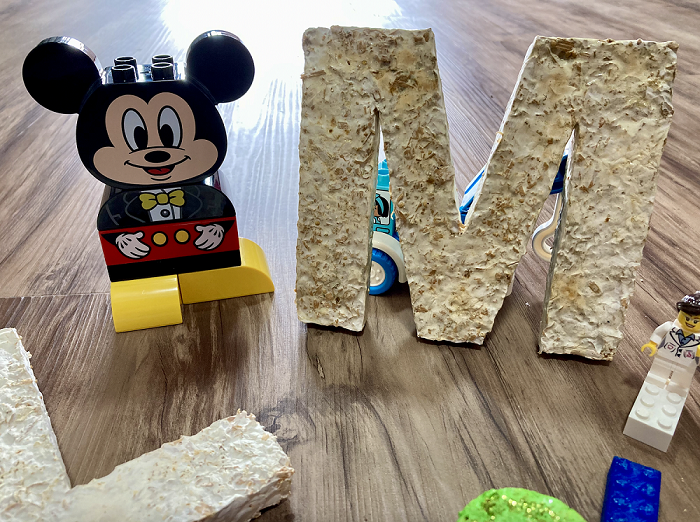
We have been playing with mycelium-bound composites, giving them all sorts of shapes. (photo credit: Hortense Le Ferrand/ETH Zurich)
A year after the official approval of the grant "Futures Cities Laboratory Global", our project on the digital fabrication of materials from fungi finally kicks off.
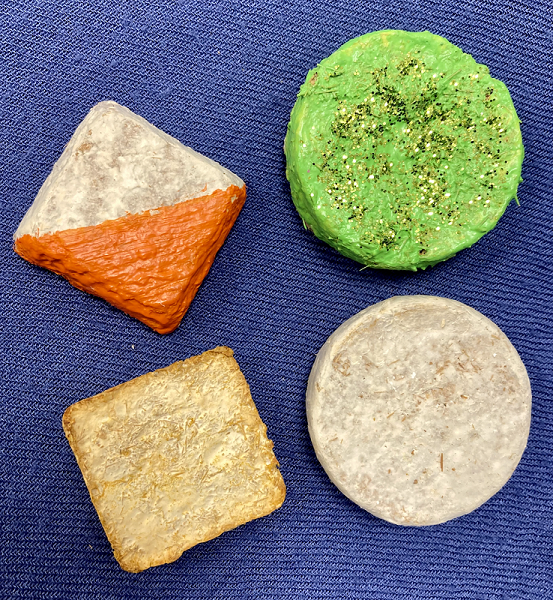
Mycelium-bound composites look white but can be colored which is key for their use in products. (photo credit: Hortense Le Ferrand/ETH Zurich)
In this module, ETH Zurich, Karlsruhe Institute of Technology (KIT), Germany, NTU, and SEC come together to explore the use of fungi and digital fabrication methods like 3D printing or computed controlled subtractive approaches to fabricate and design composites to use in buildings. Fungi grow on solid substrates derived from agricultural waste, such as wood, plant leaves, etc. During growth, they produce a mycelium which looks like a net that binds the components of the substrate together. Mycelium-bound composites resemble polystyrene a bit, except that they are biodegradable and flame resistant. What a huge potential for a circular bioeconomy! We have been brewing the idea of the project for a few years and were so excited to get the chance to pursue this research. Unfortunately, red tape hurdles, challenges in hiring, and simply co*@#-19 delayed the practical research activities significantly.
The end of December 2021, however, marks the materialisation of the project. Finally! Our kick-off research overture seminar took place a few weeks back (and can be watched below). We also had the pleasure of an inaugurating article in the Straits Time, the local newspaper of Singapore. The Workshop, the physical material and processing laboratory at SEC, is finally accessible and is now managed by newly arrived researcher, Kay, an ETH Alumni now pursuing PhD at KIT.
The delay was a bit frustrating, and the closure of the Workshop with the departure of the researchers from SEC to KIT challenged the contribution on the Singapore side of the project. Yet, Eugene, freshly minted Bachelor of Science, whose Final Year Project at SEC was on mycelium composites, was motivated enough to stay and bring his knowledge to NTU. Thus, we have been growing and testing mycelium composites in my NTU research laboratory, a chemical lab initially designed for ceramics and polymer composites fabrication and testing, not for growing fungi! Eugene faced many challenges: the mycelium spawn getting too old, the lab too cold, non-sterile, having not enough substrate material, et cetera. Thanks to his efforts and patience, and the contribution of other undergraduate students, we gained significant experience and knowledge on mycelium-bound composites. With our two published peer-review papers on the topic (Materials & Design and Plos ONE, we had enough material to present to conferences, and to grow our research network. We met up with researchers from other Singaporean institutes, as well as local companies and start-ups. The project delay was therefore not a waste: instead there were discussions, new ideas, research questions, and potential collaborations raised!
The end of December 2022 will no doubt have more stories and results to discuss!
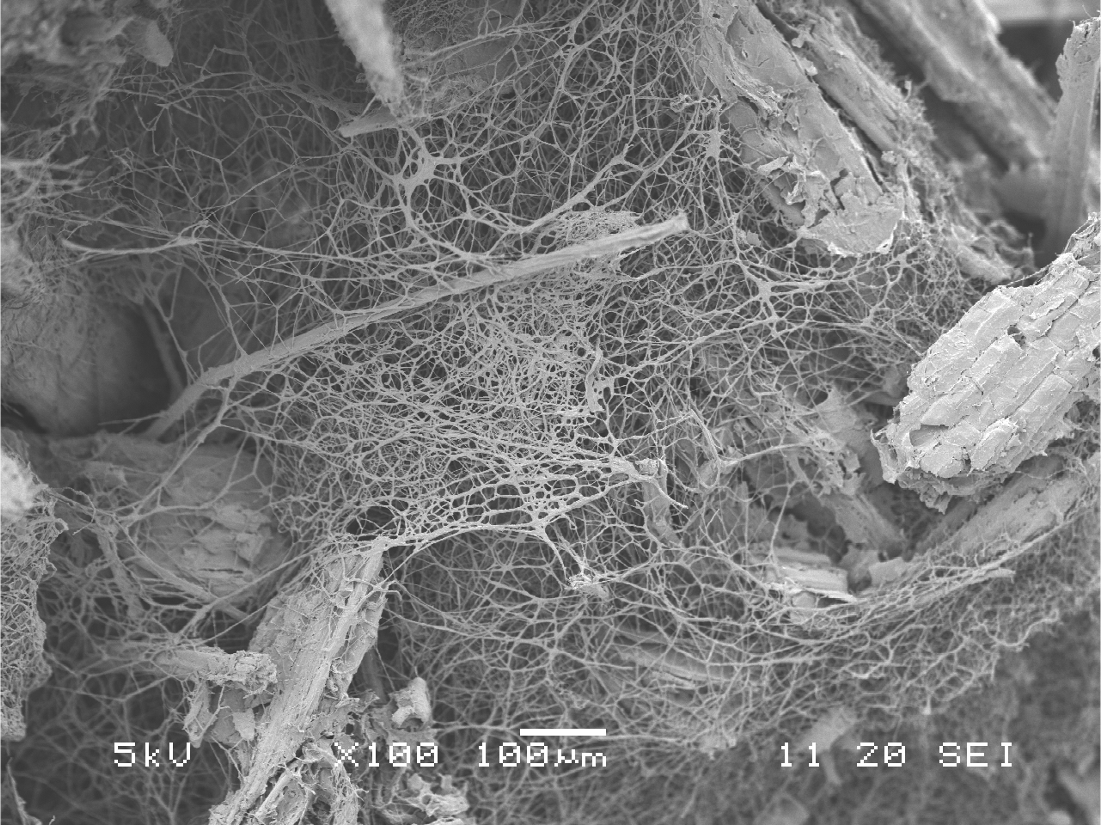
This is a scanning electron micrograph showing the mycelium "net" bonding the substrate particles together. (photo credit: Eugene Soh)
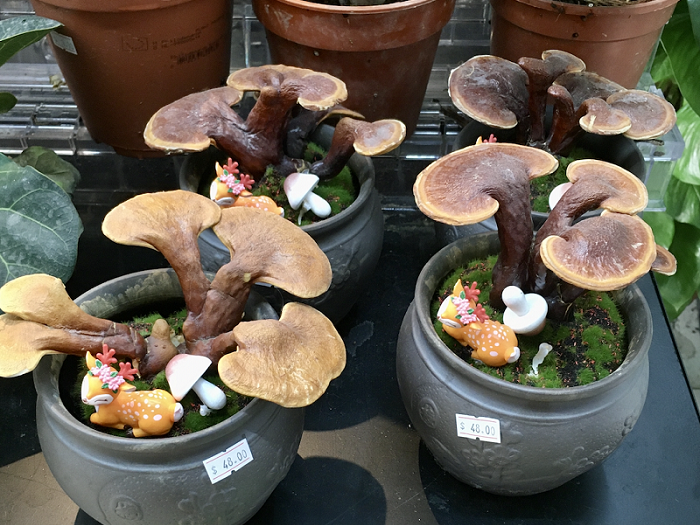
A picture of Lingzhi mushrooms sold for decoration. We can use this kind of fungi to make our mycelium-bound composites. (photo credit: Hortense Le Ferrand/ETH Zurich)
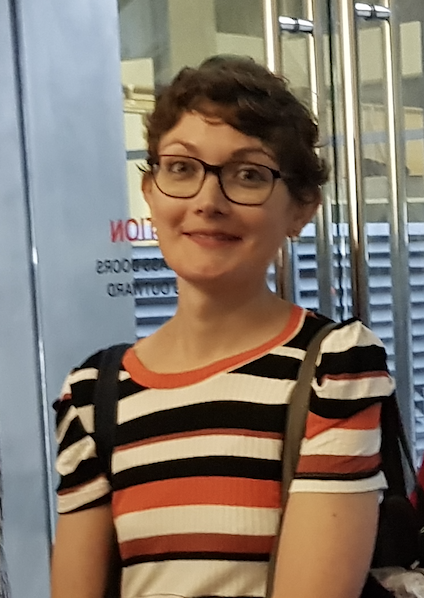
Photo credit: Evelyne Fiechter-Widemann
About the author
Hortense Le Ferrand is a D-MATL ETH Alumna and currently Assistant Professor in Nanyang Technological University in Singapore. Her research group works on developing fabrication methods for composites and ceramics, with a strong bio-inspiration component.


